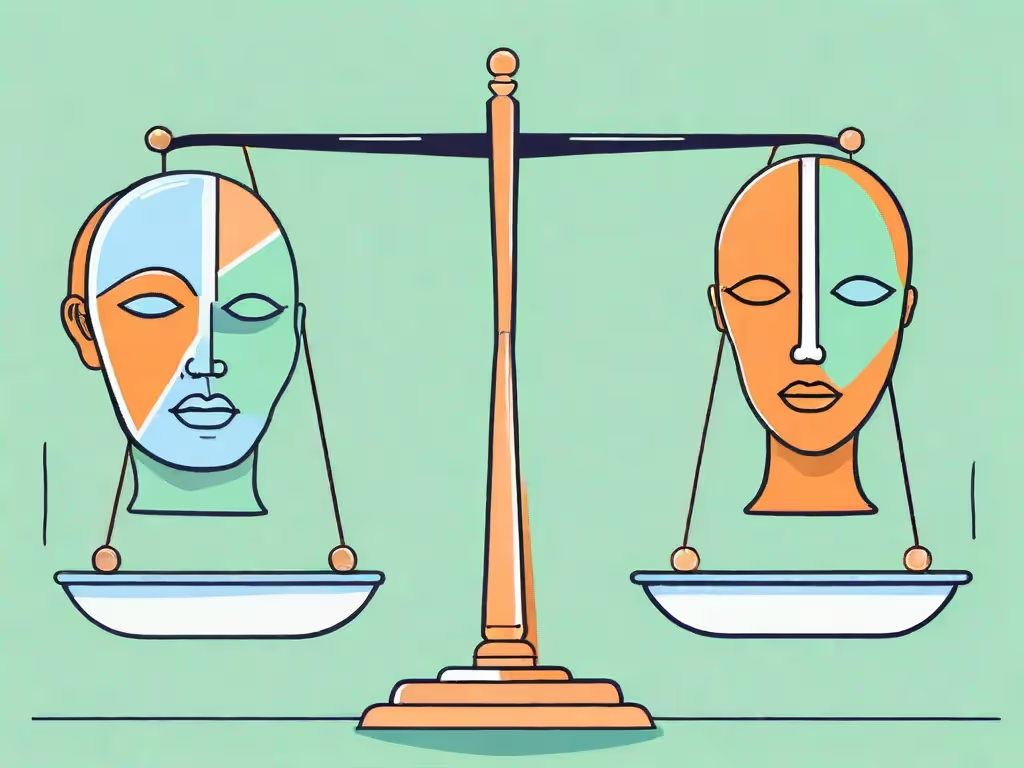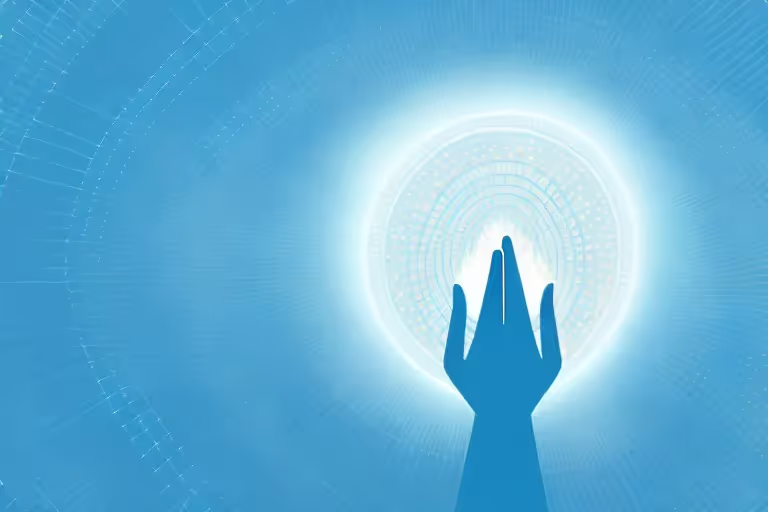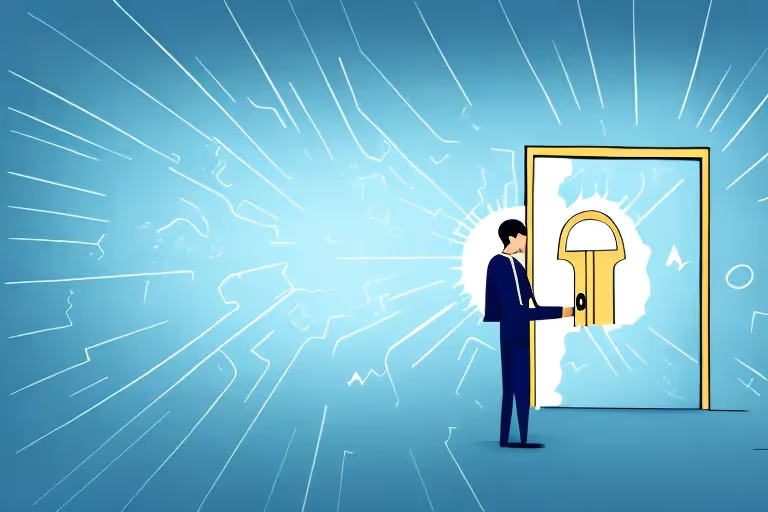Welcome to the fascinating world of self-awareness and self-delusion. In this article, we will explore the delicate balance between these two aspects of human consciousness and their profound impact on personal growth and decision-making. Brace yourself for a thought-provoking journey that will challenge your perceptions and shed new light on the intricacies of the human mind.
Understanding Self-Awareness
Before we delve deeper into the subject, let's take a moment to grasp the true meaning of self-awareness. It is the ability to introspect and recognize one's own thoughts, emotions, and behaviors. Self-awareness empowers individuals to comprehend their strengths, weaknesses, and values, creating a solid foundation for personal development.
Self-awareness is not just a mere concept; it is a powerful tool that can transform lives. When we are truly self-aware, we gain a deeper understanding of ourselves and the world around us. It allows us to see beyond the surface and delve into the depths of our own being.
By being self-aware, we become more attuned to our own needs and desires. We can identify what truly brings us joy and fulfillment, and we can make choices that align with our authentic selves. This level of self-understanding enables us to live a life that is true to who we are, rather than one dictated by societal expectations or external influences.
The Importance of Self-Awareness
Self-awareness serves as the compass that guides us through life's intricate labyrinth. By understanding our own motivations and emotions, we gain greater control over our actions and can make more informed decisions. It allows us to align our goals with our core beliefs, leading to a more fulfilling and purposeful existence.
Imagine a ship sailing through stormy waters without a compass. It would be at the mercy of the winds and currents, drifting aimlessly without a clear direction. Similarly, without self-awareness, we can find ourselves lost in the chaos of life, unsure of where we are headed or why.
Self-awareness provides us with a sense of clarity and direction. It helps us navigate the challenges and obstacles that come our way, allowing us to stay true to ourselves and our values. It empowers us to make choices that are in alignment with our authentic selves, rather than simply following the crowd or succumbing to societal pressures.
The Role of Self-Awareness in Personal Development
When we are self-aware, we can identify areas of improvement and actively work on them. This leads to personal growth and a deeper understanding of ourselves. By acknowledging our flaws and continuously striving to overcome them, we unlock our true potential and become the architects of our own destiny.
Personal development is a lifelong journey, and self-awareness is an essential companion on this path. It allows us to take stock of our strengths and weaknesses, enabling us to focus our efforts on areas that need improvement. With self-awareness, we can set realistic goals and develop strategies to achieve them.
Moreover, self-awareness fosters empathy and understanding towards others. When we have a deep understanding of our own emotions and behaviors, we are better equipped to understand and empathize with the experiences of others. This not only strengthens our relationships but also contributes to a more compassionate and inclusive society.
In conclusion, self-awareness is a vital aspect of personal growth and development. It empowers us to understand ourselves on a deeper level, make informed decisions, and live a life that is true to who we are. By cultivating self-awareness, we embark on a journey of self-discovery and transformation, unlocking our true potential and creating a more fulfilling and purposeful existence.
The Concept of Self-Delusion
On the other hand, self-delusion lurks in the shadows, masquerading as a protective shield against harsh realities. It is a subtle distortion of truth, often driven by our innate desire for self-preservation and self-esteem. However, this seemingly innocent defense mechanism can have profound psychological consequences.
Self-delusion is a complex phenomenon that has fascinated psychologists and philosophers for centuries. It is a defense mechanism that allows individuals to create a distorted version of themselves, shielded from the discomfort of facing their imperfections. This protective cocoon of self-delusion, while momentarily comforting, inhibits personal growth and hampers the ability to make sound decisions.
One way in which self-delusion manifests is through the act of ignoring or downplaying our mistakes or flaws. We convince ourselves that we are infallible, refusing to acknowledge any shortcomings. This distorted perception of ourselves can lead to a false sense of competence, preventing us from learning from our failures and evolving as individuals.
Another manifestation of self-delusion is the tendency to overestimate our abilities. We may believe that we possess exceptional skills or talents, even when evidence suggests otherwise. This overconfidence can lead to poor judgment and flawed reasoning, as we are unable to objectively assess our own limitations.
Rationalization is yet another form of self-delusion. We justify our irrational behaviors or decisions by creating elaborate explanations that make us feel better about ourselves. This allows us to maintain a positive self-image, despite engaging in actions that may be detrimental to our well-being or the well-being of others.
The psychological impact of self-delusion is far-reaching. By perpetuating a false sense of competence, we rob ourselves of the opportunity to learn from our failures and grow as individuals. It hinders our understanding of the world around us, as we filter information through the lens of our distorted self-perception. This can lead to poor decision-making, as our judgment becomes clouded by our delusions.
In conclusion, self-delusion is a defense mechanism that distorts our perception of ourselves and the world. While it may provide temporary comfort, it inhibits personal growth and hampers our ability to make sound decisions. Recognizing and challenging our self-delusions is crucial for personal development and fostering meaningful relationships.
The Interplay Between Self-Awareness and Self-Delusion
Now that we comprehend the individual facets of self-awareness and self-delusion, it is imperative to explore their intricate interplay. The line between self-awareness and self-delusion is indeed a thin one and often subject to interpretation.
The Thin Line Between Self-Awareness and Self-Delusion
At times, self-awareness can transform into self-delusion when our introspection is clouded by bias or ego. It is essential to remain vigilant and question our own perspectives to maintain an accurate understanding of ourselves.
The Dual Role of Self-Awareness and Self-Delusion in Decision Making
Interestingly, both self-awareness and self-delusion have a role to play in our decision-making process. Self-awareness helps us critically evaluate different options while self-delusion provides us with a necessary boost of confidence and optimism. Striking the right balance between these two forces is the key to making sound and informed choices.
Achieving the Balance
Now that we comprehend the delicate harmony between self-awareness and self-delusion, let's explore strategies to achieve this balance and harness the full potential of our consciousness.
Strategies for Enhancing Self-Awareness
Cultivating self-awareness requires consistent effort and practice. Engaging in self-reflection, seeking feedback from trusted individuals, journaling, and mindfulness exercises are excellent tools to deepen our understanding of ourselves and our emotions.
Overcoming Self-Delusion
To overcome self-delusion, we must challenge our preconceived notions and biases. Seeking diverse perspectives, embracing constructive criticism, and staying open to new experiences allows us to confront our blind spots and embrace the truth, however uncomfortable it may be.
The Impact of Balanced Self-Awareness and Self-Delusion
When we achieve a delicate equilibrium between self-awareness and self-delusion, the results can be transformative on both personal and professional levels.
Personal and Professional Implications
Balanced self-awareness enables us to cultivate authentic relationships, make better decisions, and achieve personal fulfillment. In the professional realm, it empowers us to become effective leaders, fostering a positive and inclusive work environment.
Societal Perspectives on Balanced Self-Awareness and Self-Delusion
Societies benefit from individuals who possess the ability to recognize their own limitations and yet remain optimistic, focusing on growth rather than stagnation. Balanced self-awareness and self-delusion contribute to a resilient and adaptable society that can navigate challenges and foster progress.
In conclusion, self-awareness and self-delusion are intertwined threads that weave the tapestry of our consciousness. Achieving the delicate balance between the two is an ongoing journey, but one that rewards us with personal growth, informed decision-making, and a deeper connection with ourselves and the world around us. As you embark on your own quest for balance, consider exploring the mindfulness and self-reflection features available on the Aura Health App, which can serve as valuable companions on your journey toward self-awareness and self-discovery.
Aura is Your All In One App for Meditation, Mindfulness Wellbeing
Find peace every day with one app for your whole well-being. There is no one-size-fits-all solution to mental well-being. Aura is the first all-in-one wellness app that learns how to best help you. Discover an endless library of expert-created tracks for your well-being, all taught by the world’s best coaches, therapists, and storytellers. With Aura's personalized recommendations, you can find peace every morning, day and night.



.webp)






.avif)

%20(1).avif)


.avif)
.avif)
.webp)


.avif)


















































































































.avif)

















.svg)









